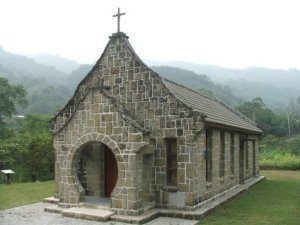by Phil Morice Brubaker
Like living stones, let yourselves be built into a spiritual house, to be a holy priesthood, to offer spiritual sacrifices acceptable to God through Jesus Christ.
 I grew up in a religious tradition that took holiness rather seriously (the Brethren in Christ Church), and each year my family would participate in the 9-day-long “holiness camp meeting.” By the time I was a youth, the camp was a far cry from its hardcore past, but there was definitely a sense that holiness = following rules.
I grew up in a religious tradition that took holiness rather seriously (the Brethren in Christ Church), and each year my family would participate in the 9-day-long “holiness camp meeting.” By the time I was a youth, the camp was a far cry from its hardcore past, but there was definitely a sense that holiness = following rules.
Decades later, I avoid the language of “holiness,” not because I found the elders of my youth to be overly rule-bound (what young person doesn’t?), but rather because “holiness” is exclusionary. To be holy is to be set apart from others. And there’s enough exclusion in our modern world.
And yet sometimes I wonder if being created into a “spiritual house” – a holy house, set apart from other houses – is exactly what the church needs to be. Mujerista theologian Ada María Isasi-Díaz has written about the concept that difference is the location where people meet. It’s a boundary, not of exclusion, but of meeting. If the church isn’t different from the rest of the world, the church can’t meet anyone.
Perhaps this is what the writer of 1 Peter is calling the church to: to be a house where people of differences can meet, not to be superior, but to offer each other justice, mercy, and humility, like a warm soup or a soft bed after a weary day. I can’t help but think that the writer was considering Micah 6:8 and the many other passages from the Hebrew Scriptures that describe what kinds of sacrifices are acceptable to God.
Holy God, make me less concerned with meeting standards and more concerned with meeting people. Let me seek justice, mercy and humility not as a quest for self-betterment, but out of love for others. Amen.
Phil Morice Brubaker is coordinator and trainer with Roots of Justice.
